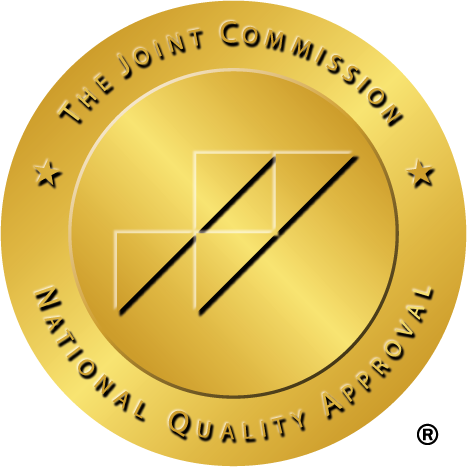As caregivers, our primary goal is to support our children in every aspect of their lives. However, despite our unwavering dedication, we might find them grappling with certain challenges.
Some children may face these hurdles early on in their development, such as struggling to follow instructions, learning to read, or navigating social situations. For adolescents, difficulties may emerge as they grow older, including issues with executive functioning, time management during tests, Attention Deficit Hyperactivity Disorder (ADHD), or organizing their work.
Even with our help, these challenges can persist, leading to a sense of frustration and helplessness among parents, children, and educators. In these cases, a psychoeducational evaluation can provide valuable insights into the child’s needs and pave the way for effective solutions.
SPEAK WITH AN ADMISSIONS SPECIALIST
What is a Psychoeducational Evaluation?
A psychoeducational evaluation is an in-depth psychological assessment that uncovers unique insights into a student’s learning abilities and special needs. It recognizes both cognitive and social-emotional strengths and weaknesses, which is ideal for identifying struggles at a young age.
These evaluations are best for kids who face difficulties with their academic skills or struggle to keep up with their peers.
The evaluation usually takes anywhere from 6 to 8 hours and is performed by a licensed psychologist or educational specialist. They might conduct various tests and assessments like IQ testing or student observations with the help of parents and teachers.
A trained specialist might also request copies of medical records and report cards to help them with their diagnosis.
A comprehensive evaluation report outlining findings and recommendations to develop effective interventions for students is provided post-evaluation. Classroom accommodations or specific teaching strategies may also be recommended to enhance learning.
It is important to note that even though the evaluations assess cognitive ability not all psychoeducational evaluations are the same.[1] Evaluations can vary depending on the student’s age or academic achievements.
Why are Psychoeducational Evaluations Necessary?
There are many different reasons why a psychoeducational evaluation may be recommended for a student. Below are some of the most common ones:
1. Identifies Learning Disorders
One of the benefits of conducting psychoeducational evaluations is identifying learning difficulties that students may encounter while in school. The achievement tests assess students’ educational level and adaptive cognitive abilities to identify areas that they might be struggling with.
This helps educational professionals create individualized academic plans and introduce intervention strategies to eliminate the challenges and facilitate student progress.
2. Helps in Identifying Appropriate Instructional Methods
Every student has unique academic strengths and weaknesses that require unique instructional methods. Through psychoeducational evaluations, educators get to identify instructional methods that would be suitable for each student. This might involve alternative teaching methods that can help the student understand academic subjects and improve performance levels.
3. Aids in Identifying Intellectual Giftedness
In some cases, students aren’t challenged enough to push their academic abilities to the limit. Psychoeducational evaluations also help identify students with intellectual giftedness.[2] This helps educational professionals introduce a more advanced, challenging curriculum that is appropriately adapted to the student’s abilities.
With this approach, students with extraordinary abilities can excel academically.
4. Helps in Providing Insights for Personalized Education Plans
Every student is unique and needs a personalized approach to education. Psychoeducational evaluations provide crucial insights into the student’s cognitive and academic abilities, helping education professionals to develop personalized education plans.
These plans aim to optimize educational achievement by taking every facet of the student’s learning needs into account. With a personalized education plan, students can overcome academic challenges and enjoy the best education possible.
5. Identifies Accommodations and Modifications Needed for Special Education
Students with identifiable disabilities require accommodations and modifications that can aid their learning process. With psychoeducational evaluations, educational professionals can identify these accommodations, which may include administrative or instructional accommodations in some cases.
Such modifications and accommodations can have a massive impact on a student’s learning experience, making it easier for the student to learn and achieve their academic goals.
Components of a Psychoeducational Assessment
The components of a psychoeducational assessment vary depending on the student’s age and academic level. However, some standard components include:
Behavioral Observations
Behavioral observation during learning tasks, peer interactions, and classroom activities is key to psychoeducational assessments. It helps skilled psychologists or educational therapists uncover behavior patterns, strengths, and limitations that test scores alone may not reveal.
Cognitive Assessments
Cognitive assessments are another vital part of a psychoeducational assessment.[3] They evaluate essential skills, such as memory, attention, and reasoning abilities. The scores from cognitive assessments help identify specific cognitive or learning difficulties that can affect academic and social development.
Academic Assessments
Evaluating a child’s academic abilities is critical in a psychoeducational assessment. These assessments explore different areas, including language and math proficiency, to identify strengths and areas that need improvement. With this information, personalized interventions can be developed to help enhance academic performance.
Social and Emotional Assessments
Social and emotional assessments are an essential part of any competent psychoeducational assessment. They evaluate the child’s social and emotional functioning along with interpersonal relations. The results of these assessments help develop personalized interventions that target specific social and emotional challenges.
Parent and Teacher Input
Parents and the child’s teachers play a crucial role in the psychoeducational assessment process. They provide valuable information about the child’s behavioral functioning, interactions, and academic progress. This information is typically collected through feedback sessions, questionnaires, rating scales, and behavioral checklists. Parent and teacher input helps develop a comprehensive profile of the child’s strengths, weaknesses, and potential challenges.
Who Should Get Psychoeducational Testing?
It’s common for children to face challenges in school, whether academically or socially. Even bright students may have trouble with certain subjects at times. It’s also not unusual for kids to go through rough patches behaviorally. However, if your child consistently faces significant difficulties in certain areas, despite receiving extra support and accommodations, it might be worthwhile to consider a psychoeducational assessment.
Consider getting a psychoeducational assessment, which is a specialized form of psych evaluation, if you’ve observed a decrease in their academic interest, they feel incapable at school, or they struggle with important intellectual, social, or behavioral skills for their age.
Remember, if your child exhibits disruptive behavior solely at school and not at home, it’s probable that it is a learning difficulty rather than a problem with their behavior. Many times, kids with undetected learning difficulties may exhibit disruptive behavior due to frustration or wanting to avoid appearing vulnerable to their peers.
SPEAK WITH AN ADMISSIONS SPECIALIST
Psychoeducational Assessment FAQs
There is no set age for a child to undergo a psychoeducational evaluation. However, these evaluations are typically recommended when a child is experiencing academic or behavioral and social challenges that are not alleviated through typical learning interventions.
Yes, psychoeducational evaluations can diagnose specific learning disabilities such as dyslexia, dysgraphia, and dyscalculia. These evaluations also explore other cognitive and socio-emotional factors that may affect a child’s academic performance.
No, not all public schools provide psychoeducational evaluations to their students or have a school psychologist on staff. However, a child’s school can refer parents to qualified clinicians who offer these assessments, and parents can also choose private psychologists or educational specialists instead.
The price of a psychoeducational assessment may differ based on the evaluator’s qualifications and location, ranging anywhere from $1000 to $3000. Insurance coverage will depend on the type of evaluation and the evaluator’s insurance policies.
It typically takes around two to four weeks to receive the results of a psychoeducational evaluation. However, in some cases, the test results may take longer depending on the complexity of the assessment and the availability of the evaluating specialist.
Related Topics
Sources
[1] Gander, S., & Campbell, S. (2018). Examining access to psychoeducational assessments by socioeconomic factors for children with behavioral referrals. Paediatrics & Child Health. https://www.ncbi.nlm.nih.gov/pmc/articles/PMC5961196/ on May 23, 2023
[2] Eren, F., Çete, A. Ö., Avcil, S., & Baykara, B. (2018, May 4). Emotional and behavioral characteristics of gifted children and their families. Noro psikiyatri arsivi. https://www.ncbi.nlm.nih.gov/pmc/articles/PMC6060660/ on May 23, 2023
[3] Cognitive assessment – statpearls – NCBI bookshelf. (n.d.-a). https://www.ncbi.nlm.nih.gov/books/NBK556049/ on May 23, 2023



